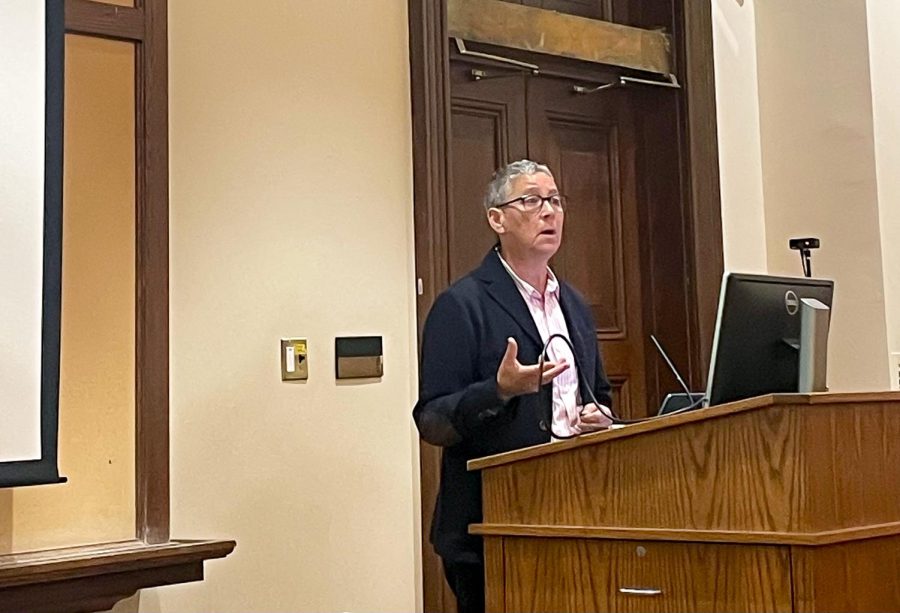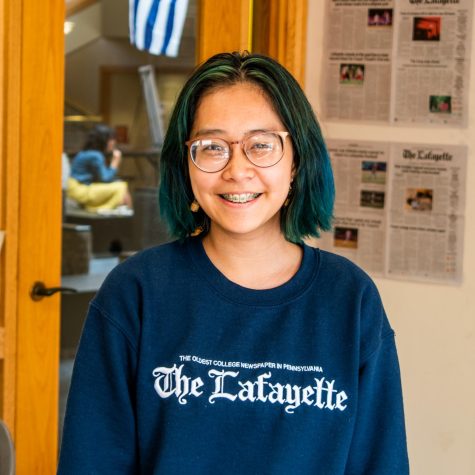Last Friday, members of the Lafayette community gathered in Kirby 104 to hear Jack Halberstam argue against an unlikely target: community.
In this talk, Halberstam criticized false narratives of community that are popular among queer people and other marginalized groups.
“I’m going to argue against Stonewall. I’m going to argue for messy, unscripted relationships to history that move towards thinking in terms of these much more rough-hewn, improvised assemblies and activities,” Halberstam said. “By the time I’m finished, you’ll realize that we need new languages for things like feminism.”
Halberstam is “one of the most important scholars of queer theory in the country,” according to English professor Megan Fernandes. He is a professor of gender studies and English at Columbia University, as well as the author of seven books. In 2018, Places Journal awarded Halberstam its Arcus/Places Prize for his scholarship on the relationship between gender, sexuality and the built environment.
“What I enjoy about Halberstam’s work is its playfulness, how it insists on bringing in everything from Spongebob to Nina Simone into a sophisticated analytics, but also how much optimism I find in the work that even in a world that feels weak and disordered, that Halberstam argues that this might be the starting point of something radically hopeful,” Fernandes said.
During his talk, Halberstam used the misconceptions surrounding the 1969 Stonewall Riots to exemplify his argument against community.
“Even if you’re straight … I bet you’ve heard of Stonewall. But you may not have heard of the many, many different gay and trans riots that preceded Stonewall that took place in other cities … that involve other subjects and that have not been memorialized,” Halberstam said. “And so if you think about that, just as a kind of narrative gesture, then you’ll see already what some problems might be with something called community.”
Halberstam critiqued similar narrative revisions that occur in people’s recounting of history.
“What happens when we look at the past and we look for one narrative … is that we end up actually kind of telling lies a lot of times about what actually happened and we choose events that have kind of heroic elements to them, and then we sell that narrative to a large audience who otherwise may not care,” Halberstam said.
Another problem with community is that it assumes “similarity across very vast fields of difference,” according to Halberstam.
To further support his argument, Halberstam pointed to the plot of Torrey Peters’ “Detransition, Baby.” Peters visited Lafayette for a reading last month. Halberstam complimented “Detransition, Baby” for being “built around the incoherence of community.”
“You can see that the whole novel is sort of pulling away from any easy form of identification,” Halberstam said.
Instead of community, Halberstam encouraged the audience to engage in “improvised forms of rebellion collectively, but without a script, without meetings, without grassroots organizations.” Halberstam advocates not for community, but for assembly.
“The assembly is a group of people who are not necessarily united by sharing an identity,” Halberstam said. “They are united because they share a cause.”























































































































